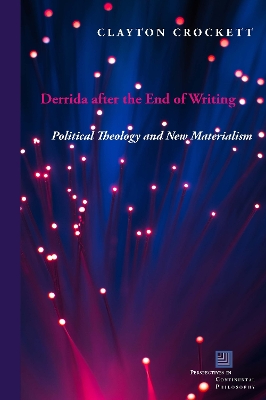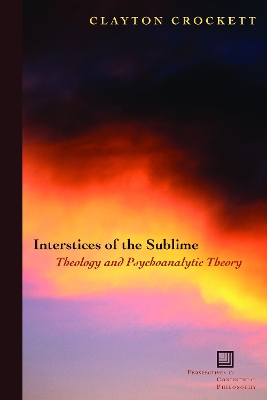Perspectives in Continental Philosophy
2 total works
What are we to make of Jacques Derrida’s famous claim that “every other is every other,” if the other could also be an object, a stone or an elementary particle? Derrida’s philosophy is relevant not just for human ethical language and animality, but to profound developments in the physical and natural sciences, as well as ecology.
Derrida After the End of Writing argues for the importance of reading Derrida’s later work from a new materialist perspective. In conversation with Heidegger, Lacan, and Deleuze, and critically engaging newer philosophies of speculative realism and object-oriented ontology, Crockett claims that Derrida was never a linguistic idealist. Furthermore, something changes in his later philosophy something that cannot be simply described as a “turn.” In Catherine Malabou’s terms, there is a shift from a motor scheme of writing to a motor scheme of plasticity.
Crockett explores some of the implications of interpreting Derrida through the new materialist lens of technicity or plasticity, attending to the significance of ethics, religion, and politics in his later work. By reading Derrida from a new materialist perspective, Crockett provides fresh readings of his ideas of sovereignty, religion, responsibility, and mourning. These new readings produce fruitful engagements with the thinkers who have followed Derrida, including Malabou, Timothy Morton, John D. Caputo, and Karen Barad.
Here is a new reading of Derrida that moves beyond conventional understandings of poststructuralism and deconstruction, a reading that is responsive to and critical of some of the crucial developments shaping the humanities today.
Interstices of the Sublime represents a powerful theological engagement with psychoanalytic theory in Freud, Lacan, Kristeva and Zizek, as well as major expressions of contemporary Continental philosophy, including Deleuze, Derrida, Marion, and Badiou. Through creative and constructive psycho-theological readings of topics such as sublimation, schizophrenia, God, and creation ex nihilo, this book contributes to a new form of radical theological thinking that is deeply involved in the world.
Here the idea of the Kantian sublime is read into Freud and Lacan, and compared with sublimation. The sublime refers to a conflict of the Kantian faculties of reason and imagination, and involves the attempt to represent what is intrinsically unrepresentable. Sublimation, by contrast, involves the expression and partial satisfaction of primal desires in culturally acceptable terms. The sublime is negatively expressed in sublimation, because it is both the "source" of sublimation as well as that which resists being sublimated. That is, the Freudian sublime is related to the process of sublimation, but it also distorts or disrupts sublimation, and invokes what Lacan calls the Real. The effects of the sublime are not just psychoanalytic but, importantly, theological, because the sublime is the main form that "God" takes in the modern world. A radical postmodern theology attends to the workings of the sublime in our thinking and living, and provides resources to understand the complexity of reality. This book is one of the first sustained theological readings of Lacan in English.

